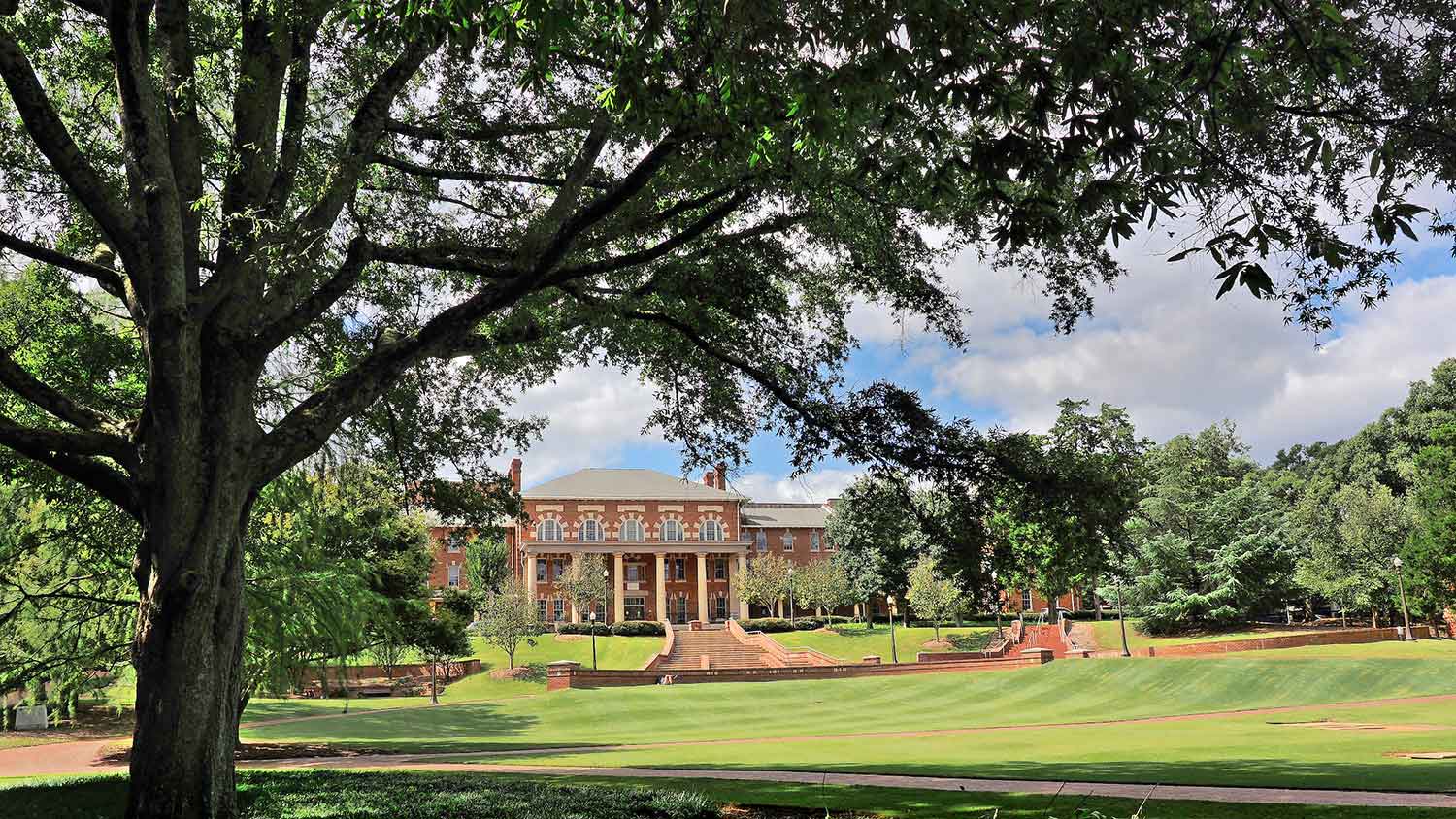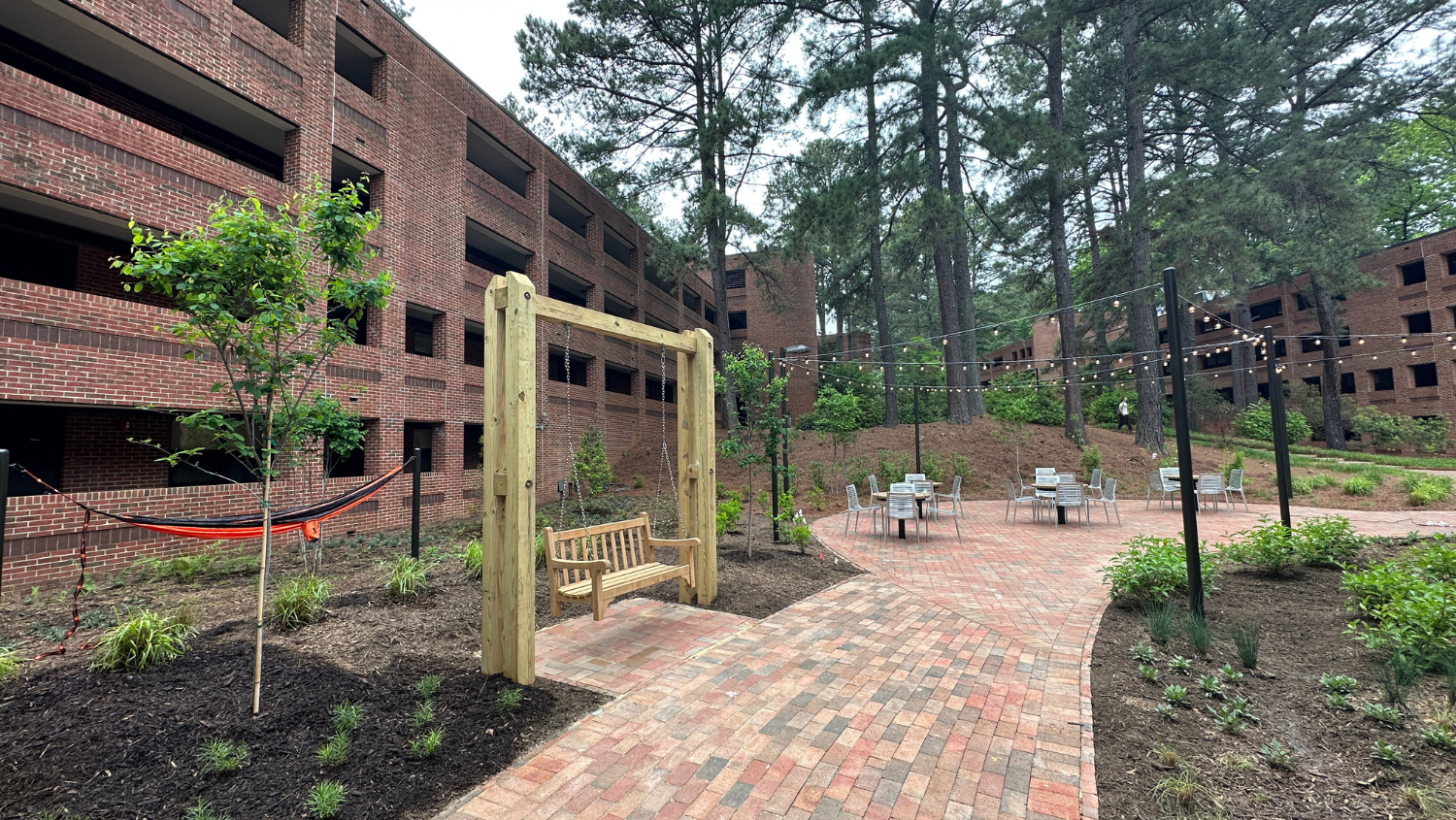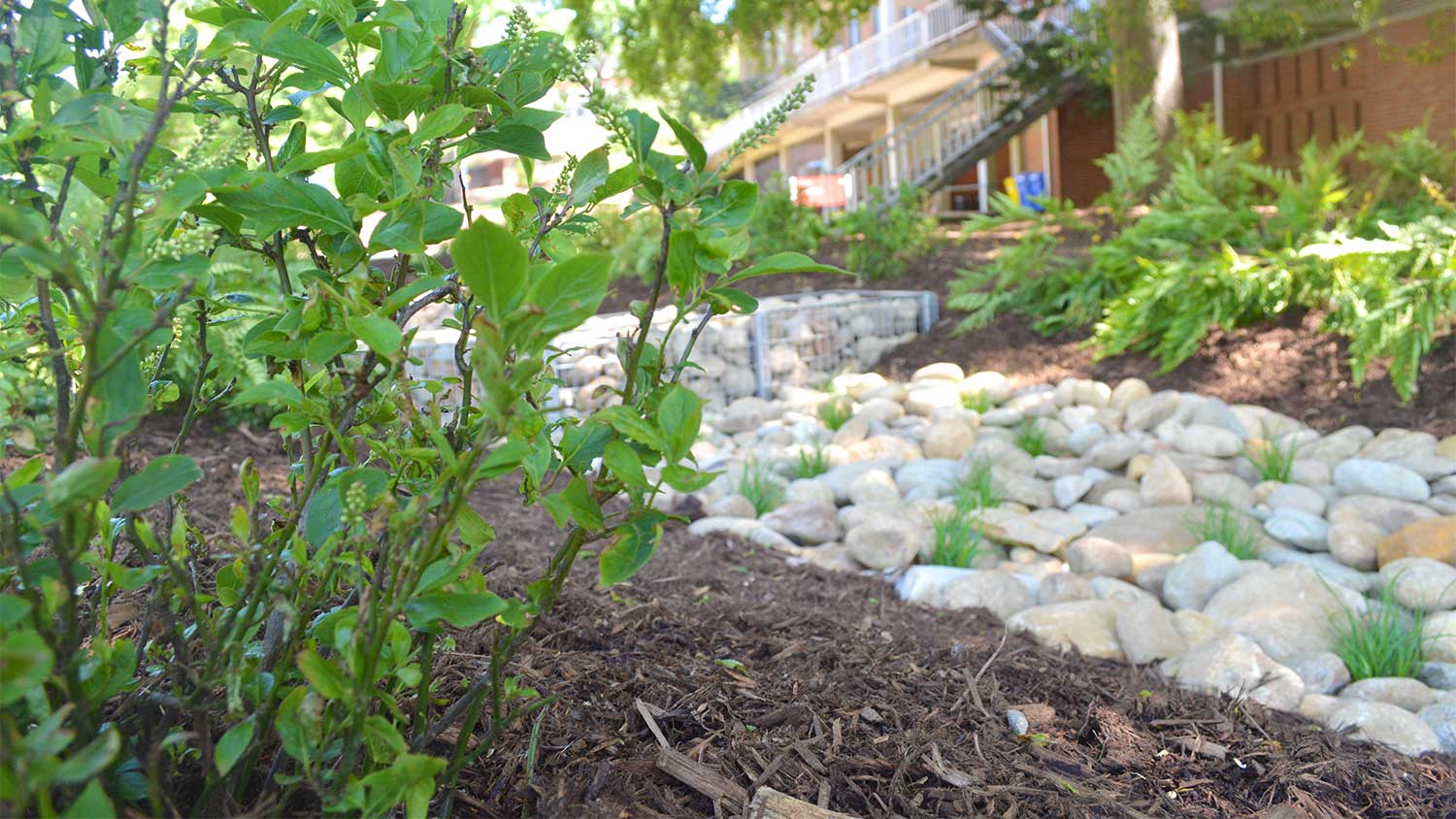Land
NC State strives to sustainably balance campus expansion with conservation, restoration and adherence to its land-grant educational mission.
NC State is growing. Campus-wide efforts are being made to balance space use with the university’s mission and core value of sustainability. This balance includes land use — agriculture, industrial, open spaces — conservation and protection of natural areas, restoration and repair of damaged natural areas, stormwater runoff, grounds management, and space utilization.
acres of land are part of NC State’s Raleigh campus.
what we do
Research
NC State features cutting-edge research in land use and care. The Department of Forestry and Natural Resources has many faculty research, centers and cooperatives. Other land use related areas of research include the Department of Applied Ecology, Biological and Agricultural Engineering, Entomology, Horticulture Science, Plant Pathology, Soil Science and Landscape Architecture.
Resources
The university and NC State Extension offer the following resources related to land and land use:
- Christmas Tree research and extension
- Cooperative Extension’s Forestry division
- Integrated Pest Management
- Greenways for Wildlife
- Department of Forestry and Environmental Resources Extension
- Tree Improvement Program
- Center for Advanced Forestry Systems
- Southern Forest Resource Assessment Consortium (SOFAC)
- Natural Learning Initiative
- Plant and Disease Clinic
- Environmental and Agricultural Testing Service
The following opportunities are available on NC State’s campus:
- Pollinators On Campus
- Student-created virtual tours of interesting campus plants
- Grounds Management
- Office of the University Architect
- Visit the JC Raulston Arboretum, a nationally-acclaimed garden
- Stormwater on campus
- Soil and Water Management Group
- Water Quality Group



